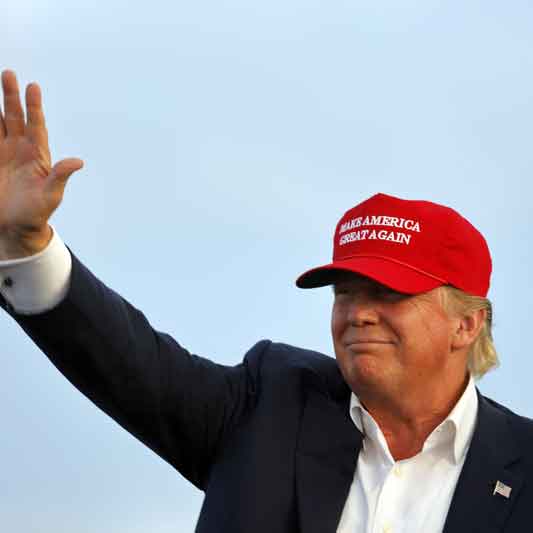On Saturday, September 7, 2024 former President Donald Trump addressed a crowd of approximately 15,000 supporters at a rally in Mosinee, Wisconsin. Touching down in his private jet, known as “Trump Force One,” Trump utilized the event to talk about perceived threats to free speech and critique the policies of the current administration.
Trump underscored the need to protect free speech, asserting, “They’ve taken away your free speech, and the fake news threat is a threat to this country.” He vowed to take measures if elected again, including enacting an executive order “banning any federal employee from colluding to limit speech” and terminating “any federal bureaucrat who engaged in domestic censorship under the Harris regime.”
The rally, taking place at the Central Wisconsin Airport, marked Trump’s fourth visit to Wisconsin during the ongoing campaign cycle. However, it was his premier visit to the deeply conservative, largely rural region of this crucial swing state. Wisconsin has been a key point of contention for both major parties, with four of the previous six presidential elections decided by less than one percentage point.
Trump’s remarks on free speech and media criticism followed a critical op-ed by New York Times publisher A.G. Sulzberger, published in the Washington Post just two days before the rally. In his piece, Sulzberger warned that “Trump stands out for his aggressive and sustained efforts to undermine the free press.” Sulzberger also advised Americans to brace themselves for Trump’s potential use of an anti-media “playbook” if he secures a win in November.
Addressing his supporters, Trump defended his media relations stance, stating, “When you’re a politician…, and you happen to be a Republican or somewhat conservative, they write just the opposite of what the facts are, and if you are driving a cab, if you’re an accountant, if you are a lawyer, if you are something other than that, you don’t know the details.” He continued, “When we know the facts, and the story gets written the exact opposite of what it is, you start to lose faith in the press.”
Besides free speech, Trump’s rally also spotlighted other campaign issues, including immigration and border security. He criticized the Harris administration for what he described as lenient border policies, linking them to rising crime rates and burden on taxpayers nationwide.
Trump’s visit to Wisconsin underscores the state’s importance in the forthcoming election. Both Trump and his Democratic rival, Vice President Kamala Harris, have frequently visited the state this year. Recent polls conducted after President Biden’s decision to withdraw from the re-election race in July reveal a near tie between Trump and Harris among Wisconsin voters.
The significance of Wisconsin in the electoral map is undeniable. Democrats view it as a crucial “blue wall” state. In the 2020 election, Biden won Wisconsin by a margin of just under 21,000 votes, whereas Trump had won the state by nearly 23,000 votes in 2016.
Trump’s focus on free speech and media relations at the rally mirrored ongoing tensions between his campaign and various news outlets. Throughout his first term and current campaign, Trump has often entered into conflicts with journalists and media organizations, frequently labeling unfavorable reports as “fake news.”
The rally in Mosinee also saw Trump making several ambitious promises, including ending the Russia-Ukraine war before assuming office and abolishing the Department of Education. These assertions align with his campaign strategy of portraying himself as a transformative figure capable of making substantial changes to government policy and international relations.
As the campaign heats up, Trump’s discourse on free speech and media relations is expected to remain a central theme. His commitments to defend free speech and overhaul media interactions, if elected, starkly contrast with warnings from individuals like Sulzberger about potential threats to press freedom under a second Trump administration.
The rally in Mosinee, marked by its enthusiastic crowd and Trump’s assertive messaging, sets the scene for what is likely to be a closely observed and hotly contested election in Wisconsin and throughout the nation. As both campaigns escalate their efforts in key swing states, the topics of free speech, media relations, and government transparency are set to play crucial roles in shaping voter perceptions and ultimately, the result of the 2024 presidential election.

